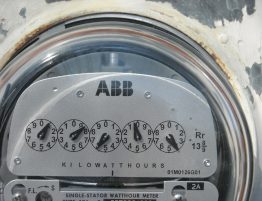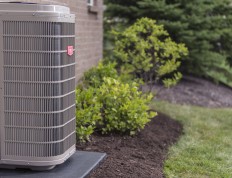
Some regions of the country are dominated by natural gas-fueled furnaces providing forced-air heat. Other regions (like Florida and Georgia) employ air-source heat pumps much more commonly. There are several other types of heating available, including electric baseboard or ground-source (geothermal) heat pumps, but for this discussion, the comparison is between gas and electric above-ground systems.
If you’ve lived in one region (or multiple similar regions) most of your life, you’re likely used to one type of heat. So the answer of which fuel type may seem obvious to you. But if you’ve moved to a different climate, you may have more questions. Whether it’s, “How do I operate this (heating appliance)?” to “Which heat source should I buy (for new construction or to replace existing heat)?”
Available Utilities
Sometimes the decision is made for you, whether by your municipality or by the services installed in your home, apartment/condo, or business. If you live in a multifamily development (even if you own, rather than rent, your unit) only certain utility connections may have been run. This is also likely how your washer/dryer hook-ups are set up—though the options aren’t necessarily the same. You may not be permitted to run additional services, or it may just be too costly to be worth it. In that case, your best option is to stay with the provided heating fuel.
Climate
Assuming you do have choice of utility connections, the next factor in your decision is the climate. Furnaces dominate northern climates where they can hold their own against sustained temperatures below freezing. Air-fueled heat pumps are generally unable to compensate for long-term freezing temperatures and require supplemental heat, so the furnace is the better above-ground choice. However, in southern climates like ours, heat pumps are much more common. Their efficiency, ability to provide comfort in FL/GA winter temperatures, and availability as an all-in-one (air conditioning and heating) unit make them an excellent (and popular) choice for a subtropical climate. However, just as heat pumps can be a good choice for efficient supplemental heating in climates further north, a gas furnace can still be the right equipment for some southern installations due to other considerations.
Fuel Rates
Another important consideration is the balance between initial (purchase and installation) costs and operating costs—fuel and maintenance. If purchase, installation, and maintenance are comparable between the two appliance types, then fuel costs are an important comparison. Gas and electric rates vary widely across the country, and can even vary within the same service area. Compare your rates, average fuel consumption to achieve the same comfort levels, and let the inform your decision.
Ecological Impact
If you have options, you can also consider the ecological effect of your fuel source. While electricity is generally considered “clean,” it certainly depends on the fuel source used by your local electric plant. Some regions of the country use coal—which can be a heavy pollutant. Others use nuclear power, wind, solar energy, and (ironically) natural gas. In fact, locally, if you avoid natural gas heat in your home or business to use a cleaner energy source, you may be buying electricity powered by (surprise!) natural gas. So do your homework to determine how your local energy is supplied and make decisions that both align with your ecological values (as much as you are able) and your economic efficiency.
There are certainly many factors involved in deciding how best to heat your home or business, and these are helpful tips to get you started. We’d love to help you find the right system for your needs, so give us a call at 904-607-5777 or reach out to us online!







